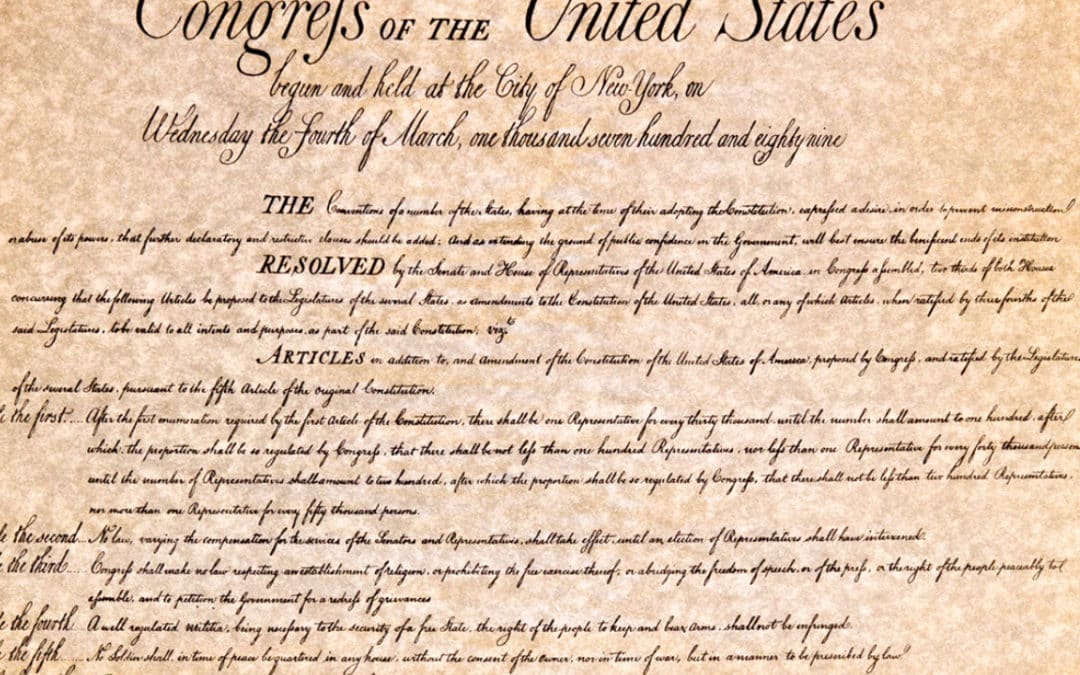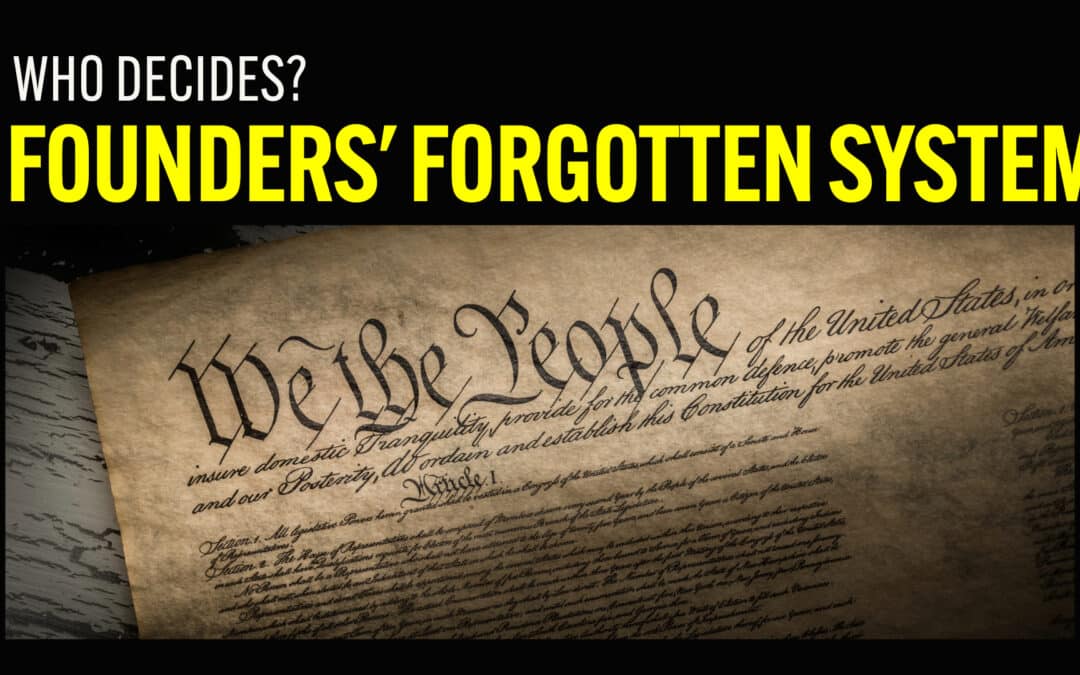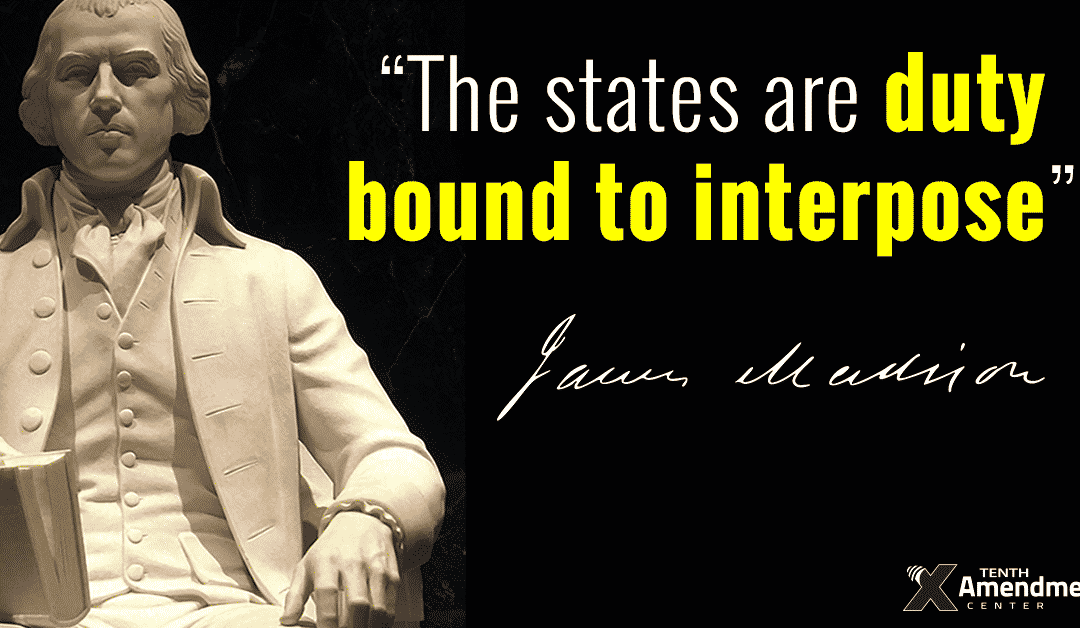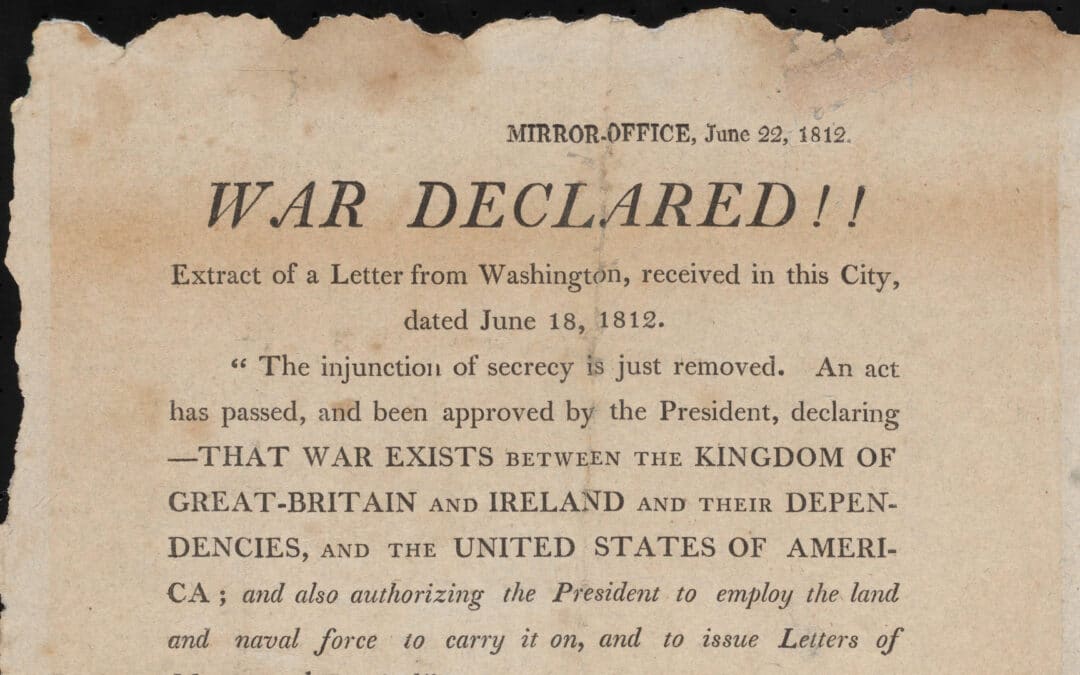
James Madison


James Madison’s Speech that Set the Stage for the Bill of Rights
On June 8 1789, the “Father of the Constitution” James Madison rose on the floor of Congress to propose a series of significant amendments, setting the stage for what would become the Bill of Rights. FROM SKEPTIC TO ADVOCATE The occasion marked somewhat of a strong...
General Welfare Clause: The Truth They Never Teach
“It would be ABSURD to say … Congress may do what they please.” That was James Madison, obliterating the modern lie that the general Welfare Clause is a blank check for almost unlimited power. But that’s exactly how it’s treated and used today. The general Welfare...
Who Decides? The Founders’ Forgotten System of Checks and Balances
“There is not a syllable in the constitution, that makes a decision of the judiciary – of its own force, and without regard to its correctness – binding upon any body, either upon the executive, or the people.” That’s from Lysander Spooner, reminding us of...
Duty Bound: James Madison’s Six Principles to Stop Federal Tyranny
The states are “duty bound to interpose.” That’s how James Madison put it in his Virginia Resolutions, passed on Dec 21 and 24, 1798, in response to the Alien and Sedition Acts. His resolutions answer a timeless question: What should be done when the federal...
